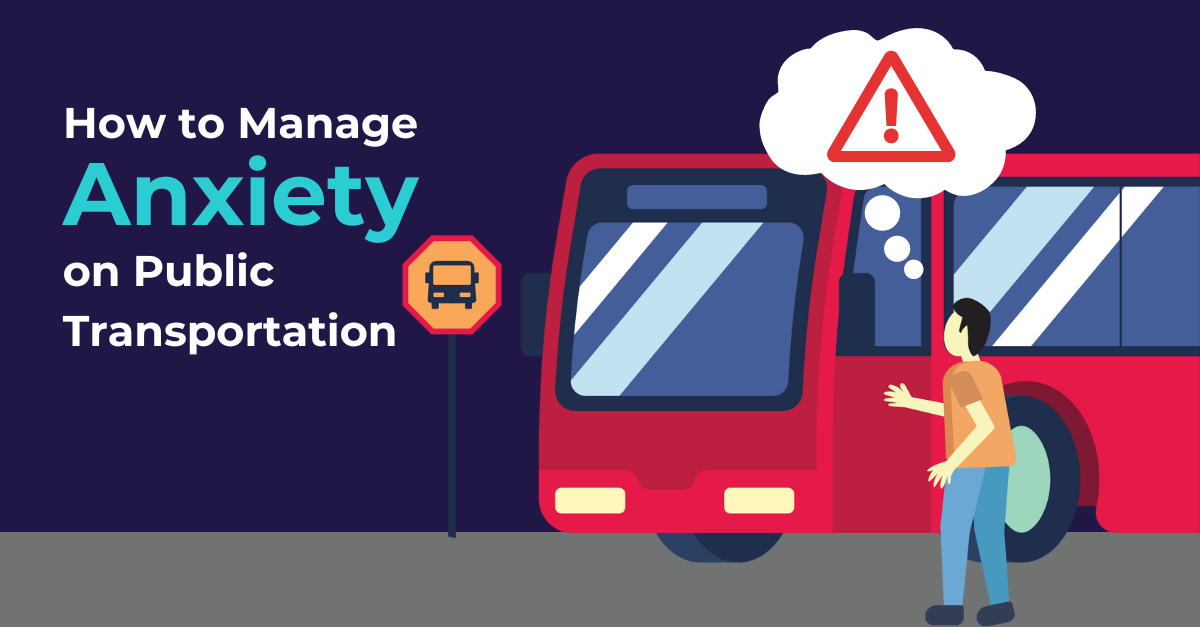September 28th, 2022

Do you struggle with taking public transportation? Does your chest tighten every time you get on a train or a bus? It’s more common than you think. If you’re someone who feels panicked or anxious at the thought of having to use public transport, here is some helpful information for you to know.

Having a social anxiety disorder could cause feelings of stress during public situations or in crowded places. If you’re someone who lives with an anxiety-related phobia, such as agoraphobia, you may feel resistant to leaving your home or be overwhelmed in open and enclosed spaces, crowds, and the many different forms of public transportation.
When faced with a stressful situation, take note if you experience the following symptoms:
These kinds of anxiety symptoms, particularly when one is faced to use a bus, train, or another kind of communal transport method, can cause intense fear and can result in those affected avoiding new places, unfamiliar locations, and social situations.

If you have anxiety about public transport, you aren’t alone. Realizing your fear of public transportation is the first step towards finding a way to combat the ongoing emotions you experience. Once you understand the cause of these intense feelings, you can find ways to help manage them during stressful situations.
You'll want to take some time to find coping techniques that work for you. Don't feel discouraged if it initially doesn't work how you expect it to. Here are a few coping techniques you can consider to help you get around the city with anxiety:
Trying any one, or all, of these techniques can help to disrupt your anxious feelings and provide you with the mental balance you need to get from point A to point B.

As tempting as it may sound, try your best not to avoid public transportation especially if it’s an accessible and convenient method of commuting to work or school. These feelings of stress and discomfort will continue to fester and it will become increasingly challenging for you to overcome the anxiety of getting around to the places you want, or need, to get to.
Instead, take some time to consider what part of public transportation is really causing you to feel stressed and overwhelmed. Is it the crowds of people? The movement of the train? Is it because you have an anxious temperament, or is it other outside environmental stressors?
Different parts of your brain control your anxious or fearful responses. If you can get to the underlying causes of your anxiety, you may be able to find even more coping skills to utilize. Talking to a therapist about your anxiety can help you understand and recognize some of these underlying causes. And that kind of support can help you start feeling more confident about getting from point A to point B no matter what form of transportation you use to get there.
At Clarity Clinic, we have highly trained staff who specialize in therapy and psychiatry services. To learn more about how we can support your mental health, call Clarity Clinic at (312) 815-9660 or schedule an appointment today.
Our Services
Virtual/Online CarePHP and IOPAdult PsychiatryChild & Adolescent PsychiatryAdult TherapyChild & Adolescent TherapyCouples CounselingFamily TherapyGroup TherapyPsychological TestingTranscranial Magnetic Stimulation (TMS)